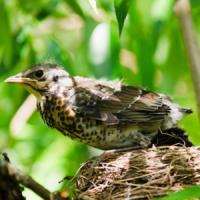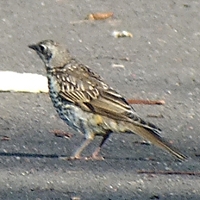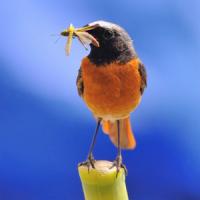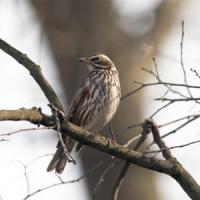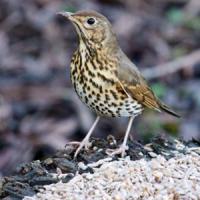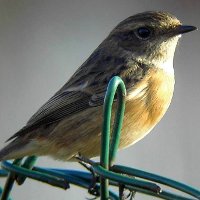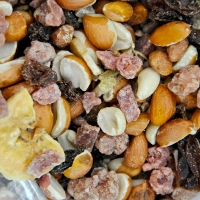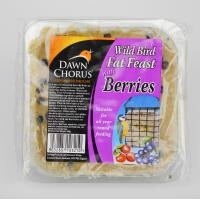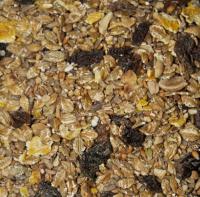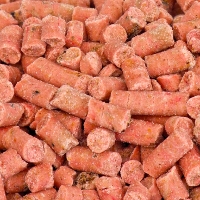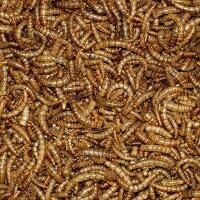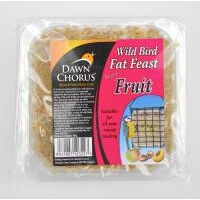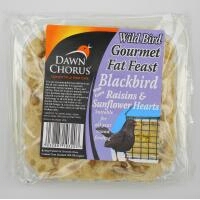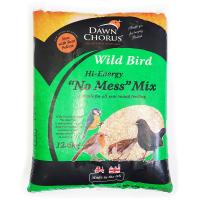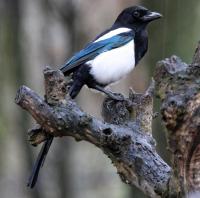- Home
- FAQs
- Customer Video Gallery
- Customer Photo Gallery
- Bird Facts
- Bird Food Blog
- Bird Information
- Feeding Advice
- Small Animal Information
- A to Z of Guinea Pigs
- A to Z of Hamsters
- A to Z of Rabbits
- Basic Care for Guinea Pigs
- Basic Care for Hamsters
- Basic Care for Rabbits
- Basic care for Chinchillas
- Basic care for Ferrets
- Basic care for Gerbils
- Basic care for Mice
- Basic care for Rats
- Buying a Healthy Small Animal
- Does your Reptile need a Licence
- Equipment for Ferrets
- Equipment for Hamsters
- Equipment for Mice
- Equipment for your Chinchilla
- Equipment for your Gerbil
- Equipment for your Guinea Pig
- Equipment for your Rabbit
- Keeping a House Rabbit
- Dog Information
- Cat Information
- Customer Information
- Fat Balls
- Suet Pellets
- Straights
- Seed Mixes
- Suet Treats
- Mealworms
- Bird Feeders
- My Account

| Scientific Name | Turdus merula |
| Breeding | March-April |
| Fledge Days | 14-16 |
| Incubation Days | 13-14 |
| Lifespan | 3 years |
| Number of Clutches | 2-3 |
| Number of Eggs | 3-5 |
| Size | 24-25cm |
| Weight | 80 - 125g |
| Wingspan | 34-38cm |
Bird Family : Chats and Thrushes
Blackbird Facts - Information About Blackbird
Common Blackbird - Tardus Merula
The Blackbird is a very familiar sight in our parks and gardens. It is a member of the Trush Family, sharing our gardens with the less common Song and Mistle Thrush.
The adult male and female have different plumages as does the juvenile. Blackbirds are not shy and will often come into the garden and happily feed around gardeners as they turn over the soil in the hope of finding a stray worm or two.
Identification:
Adults
- Male Blackbirds are very easy to identify.
- Blackbirds are around 25cm in length.
- The entire plumage is black, only the bare parts of the bird are coloured differently.
- The male Blackbird has a bright orange bill and an eye ring of a similar colour, the legs are dark brown. However, males in their first winter plumage have a dark bill and eye ring.
- Females are dark brown ‘ghosts’ of the male with a duller bill and eye ring.
- The females, unlike the males, have a paler throat and light streaking to the breast.
Juveniles
- Juveniles appear from April onwards and are similar to adult females but slightly paler headed and show more overall streaking to the breast and back.
- Bill, eye ring and legs are grey/brown.
Status and Distribution
The Blackbird is a very abundant breeding resident in the UK with over 4.5 million pairs. The Blackbird occurs in all counties throughout the UK.
In winter numbers increase as migrants come to the UK from Northern Europe to spend the winter on our shores, migrants start to arrive in September, these migrants will return to Northern Europe to breed in March.
Habitat / Food
Blackbirds occur in all habitat types throughout the UK, woodlands, parks, gardens, farmland, hedgerows indeed any open country habitat with suitable scrub.
In the garden Blackbirds love earthworms, mealworms, snails, fruit, suet, seed mixes. They are happy feeding mainly at ground level, but will feed higher up to get at fruit etc. Our Gourmet Blackbird Fat Feast is specially designed for the Blackbirds taste.
Song / Call
Several call notes; most common are a short sharp high pitched ‘seee’, (similar to Robin) and hard repetitive ‘chack chack chack chack’.
Song is sung from an obvious perch and is a series of loud, flutey whistles, rich in quality and tone. These are delivered in short bursts and repeated, sings at dusk as well as early morning.
The following food is favoured by Blackbird





